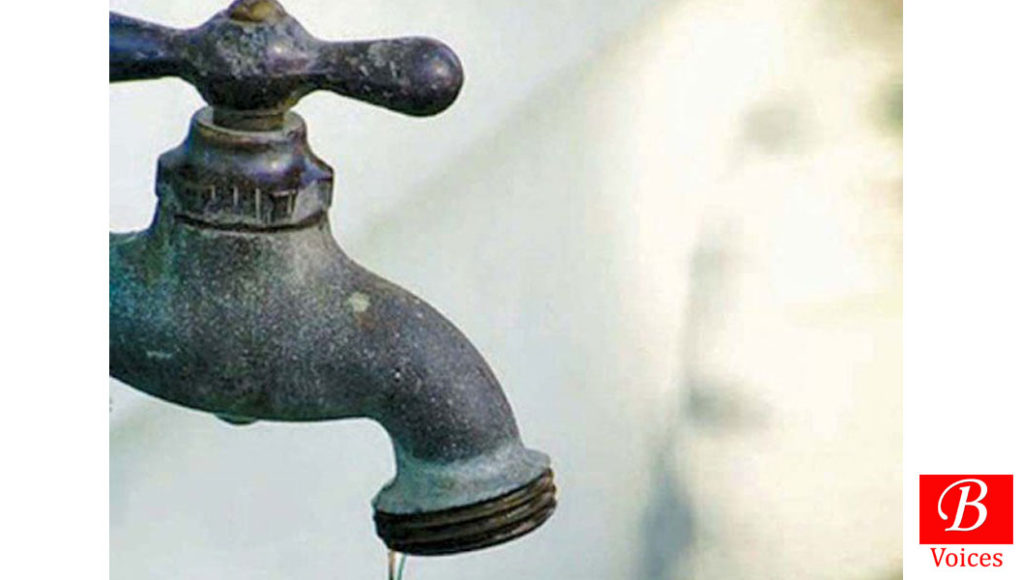Ayaz Ahmed
The importance of water can be ascertained from this fact that it has been regarded as a potential source of national power for a sovereign nation. But the major sources of water are fast depleting in Pakistan due to lack of political will in terms of building new dams and making the existing water reservoirs efficient. Since Balochistan is the most neglected and backward province, it has been adversely plagued by severe water crisis since 2010. According to some estimates, the province will face chronic water shortages in the coming years if the incumbent provincial government continues to ignore the issue.
Balochistan spreads over an area of 347,190 sq. km with a estimated total population of 13 million. According to the Asian Development Bank (ADB), around 70pc of its population lives in rural areas and largely depends on the sector of agriculture. Agriculture accounts about two-thirds of the provincial domestic product, 60pc of the labour force, and supports several industries by providing raw materials.
However, the agricultural sector suffers from water shortages, frequent drought, and poor agricultural practices, which expose the rural communities to high vulnerability especially women and children who suffer from the inadequate domestic water supply. Quetta valley now faces a high water deficit. About 57 percent of the Balochistan’s water resources comprise of floodwater, which is highly unpredictable and significant part which flows down to the sea. Due to the water crisis, the projected economic hub of the region, Gwadar, has been beset by ominous water shortages where people are compelled to drink unsafe water.
Owing to the unpleasant climate change and global warming, the major sources of water in Pakistan such as glaciers, rainfalls and underground water reserves are decreasing and dwindling by leaps and bounds. Unlike other provinces, Balochistan mostly depends on annual rainfalls and decreasing underground water resources to meet its water requirements. Since the rainfall is decreasing each year, so are the existing water resources of the province. The alarming water issues would inevitably leave adverse impacts on the economy of the province.
The ongoing water crisis is attributive to some deep-seated causes. All the governments right from the 1970s have shown reluctance and indifference to building an adequate number of dams in the province. Only a single satisfactory dam was constructed during the time of the last military ruler in Turbat, the Mirani dam. Notwithstanding new dams, the successive governments have also disregarded the digging and desalinization of the few existing water storages. Most of the dams have lost their actual capacity of storing water owing to the accumulation of sludge and sand. A conspicuous example is Ankara Dam, located in the suburbs of Gwadar, which has lost much of its capacity, thus instigating severe water shortages in Gwadar and surrounding villages and towns.
Unrestrained and rampant corruption coulped with political incompetence is also responsible for the ever-increasing water crisis in the province. Billions of rupees have been misused and embezzled by awarding tenders to corrupt and amateurish builders and companies for construction of dams. Due to lack of geological know-how, these contractors have misused the public money by building dams in wasteful sites. It is nothing but a pity that no stringent actions have been taken to stop such loot and plunder of pubic resources.
The people are also contributing to the menacing water crisis through multiple means. In cities and town throughout the province, residents are unmindful and neglectful of required methods of water conservation. They waste a large amount of water by irresponsible usage.
The specter of the water crisis is more troublesome and detrimental than the rampaging terrorism, miitancy, sectarianism and insurgency. Lack of water has substantially decreased the annual production of fruits in the province. The sector of agriculture has been hit hard and therefore, many a farmer is becoming jobless, thus increasing the level of poverty and joblessness all over the province. The dearth of food production and potable and safe drinking water has caused a slew of water-borne diseases in Balochistan. Apart from that, a large number of children are getting malnurished in the province.
The incumbent provincial government should take up the matter of water crisis on an urgent basis. Before any ground measure, the deeply-seated political lethargy couple with corruption and favouritism should be brought to an end. Afterwards, enough water reservoirs should be built in those places which receive a satisfactory amount of annual rainfalls. The actual capacity of all existing dams needs to be regained by digging. The dams ought to be equipped with all hydro-power tools so as to generate electricity from the them. Last but not the least, the public should be trained and informed via the media and education about the techniques of water conservation so that they avoid misusing and wasting water.
The world’s history is replete with such stories that the countries which learned lessons from national crisis and took effective steps to resolve them, emerged as victorious. We need the same spirit to make the resource-rich Balochistan a prosperous and advanced province. Or else, we will further go deep into issues and crises that it would be impossible to come out of them.
Writer is a featured columnist for Balochistan Voices.
Share your comments!








